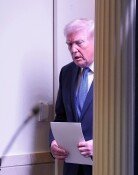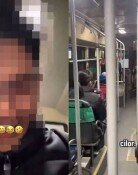New Administration Will Be Practical and Creative
New Administration Will Be Practical and Creative
Posted December. 21, 2007 09:58,
Lee Myung-bak, the president-elect, said yesterday that he will exercise creative spirit and leadership and help achieve unity among the public and economic growth, enabling Korea to join the ranks of the worlds advanced countries.
The fruits of the elevated status of Korea will go to ordinary citizens and those in the middle-income bracket. Lee said at the first press conference held at the press center in Jung-gu Seoul, after the election, Korea achieved industrialization in an unprecedented short time and secured democratization at the expense of many. Now is the time for Korea to become advanced. This is the call of the Lee Myung-bak administration.
Lee said, Applying changes while pursuing harmony is the key to realizing this vision. Anger, hatred, and lies cannot sophisticate the country. Resolute harmony is the condition to making a difference, he added, emphasizing the need to overcome divisions of society and strife between political parties. More focus, however, is being put on changes. He said, Without changes, becoming an advanced country or facilitating further growth will not take place. The Korean people need to feel that that they can do it and converge their forces into achieving a common goal. Lee also said that it is time to let bygones be bygones and that the times require him to display creative and practical leadership.
He said that he will create new growth engines in order to meet the expectations of the public who have chosen practicality over ideologies. He also said, by creating jobs, that he will turn the economy around and restore the confidence of small companies, players in the local economy, and self-employed entrepreneurs, signaling future deregulation measures. These are the areas he said would put special focus on, with all of them pointing toward a strengthening of the economy.
Lee said at a press conference, I will demonstrate leadership based on determination and commitment. I am well aware of the reason why the people voted for me, and I am going to keep all the promises I have made.
Around 200 local and international reporters covered the first press conference with Lee. A group of bodyguards from Cheong Wa Dae protecting the former Seoul mayor showed that Lee is truly the president-elect. The following is an excerpt from the press conference.
Q. Since adopting the direct presidential election system, the largest number of voters voted for you. What is your take on this?
A. The Korean people knew something had to change after tolerating Roh for the past 10 years. They were more proactive about changing the administration. In this new era, we will do away with obsolete ideas, move forward into the future, and create a government that is pragmatic and creative to give the people more hope.
Q. Please be more specific about how you will turn the economy around and what is your first priority?
A. Reviving the economy means reviving investment by companies, about which Im hopeful. For the last 10 years, due to anti-market, anti-business sentiments, corporate investment has dwindled. I am not sworn in officially, but I will start changing the investment environment and will persuade foreign companies to invest in Korea.
Q. How will you run the committee for change of government?
A. I will focus more on the practical side, rather than formalities. In the process, I will ask staffers to pay special attention to their jobs in order to create a stable working environment. This way, confusion and anxiety coming from the first change of administration in 10 years will be mitigated.
Q. People are concerned about a possible change of approach in engaging North Korea.
A. I will go beyond the ideological borders of liberalism and conservatism to pursue practical inter-Korean diplomacy, and the same will be true for North Korean issues. The most pressing issue between the two Koreas is the resolution of North Koreas nuclear program issue. Under the premise that the complete dismantlement of North Koreas nuclear program will trigger serious inter-Korean economic cooperation, we will talk the North out of its nuclear program by telling them that is the only way for them to keep their regime intact and that it should be done also for the sake of the North Korean people. All this will be carried out with the help of the international community through six-party talks. In this regard, the Korean government needs to help the U.S.-DPRK talks, in particular, to be a success.
Q. The South Korean government has never been critical of the North.
A. In the 1960s when South Koreas GNP was low, many industrialized countries that helped Korea stand on its own feet economically were worried about the nations human rights abuses. The military government was defiant, but I think that those critical assessments from other countries certainly improved human rights conditions. In regard to inter-Korean issues, we should not blindly keep mum about what is going on in the North. Instead, we should criticize with affection, which I believe, will make the North a healthy country. In the process of providing humanitarian aid, I will make sure these constructive criticisms are conveyed to the North.
taylor55@donga.com kimhs@donga.com







